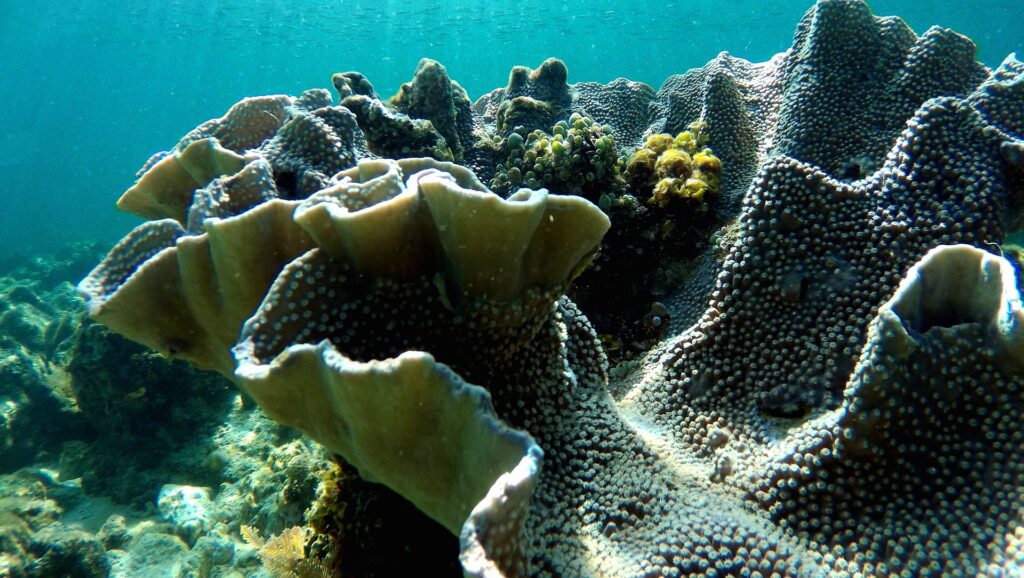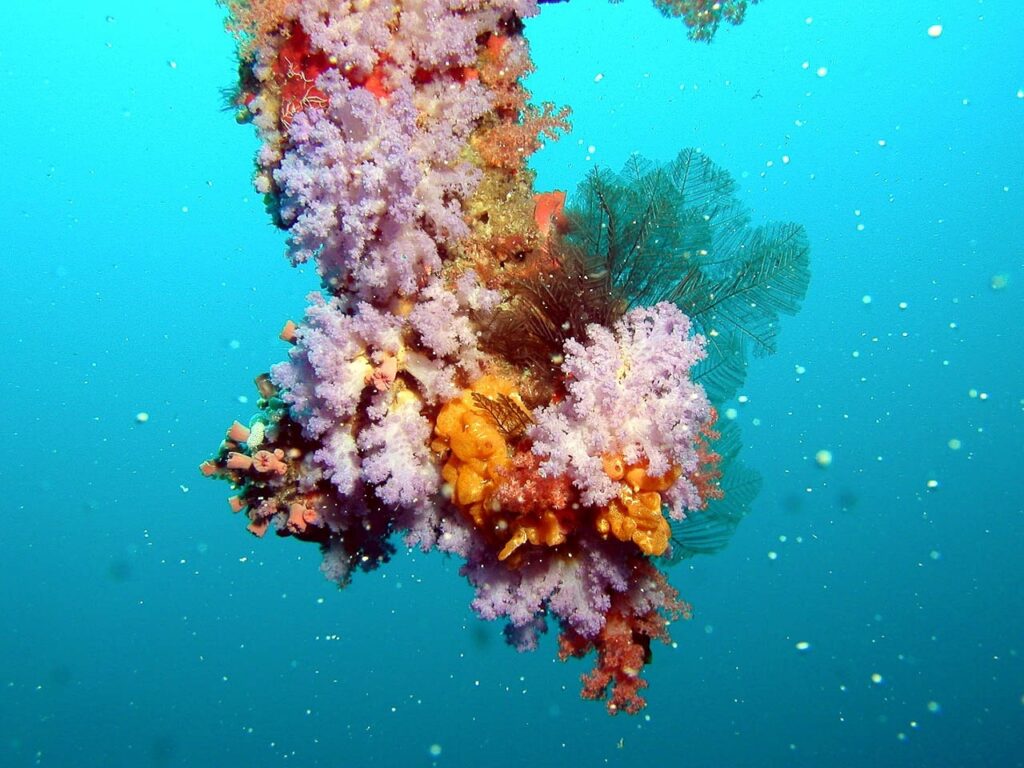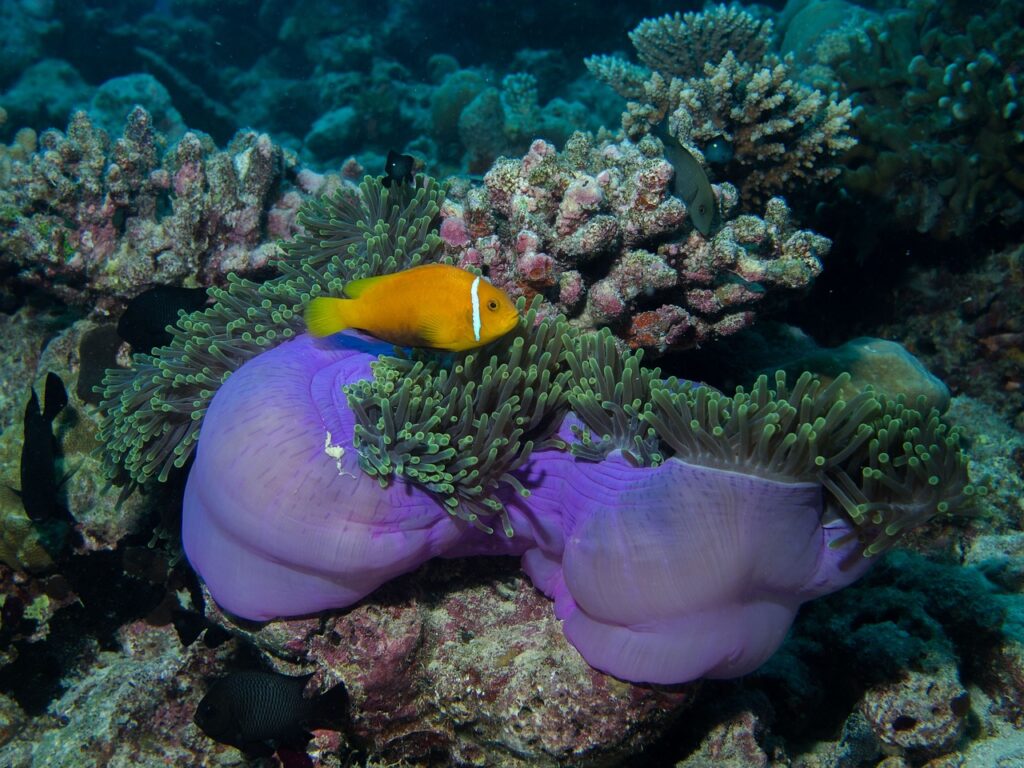The Maldives is home to some of the most beautiful and diverse coral reefs in the world. In this article, we will provide a comprehensive overview of coral reefs in the Maldives, including their biodiversity, importance to the local ecosystem, threats they face, and efforts being made to save them.

The Maldives is home to some of the most diverse and important coral reefs in the world. Coral reefs are an essential part of the marine ecosystem, providing habitat for a wide range of marine species and supporting local economies through tourism and fishing.
The Maldives’ Coral Reefs
The coral reefs in the Maldives are some of the most diverse and beautiful in the world. They are home to over 1,000 species of fish and over 200 species of coral. The reefs are also home to a wide range of other marine life, including sea turtles, sharks, rays, and dolphins.
The coral reefs are an essential part of the local ecosystem. They provide habitat for a wide range of marine species and help to protect coastlines from erosion. The reefs also support local economies through tourism and fishing.

Coral’s Role in Marine Life
Coral reefs play an important role in supporting marine life. They provide habitat for a wide range of marine species, including fish, crustaceans, mollusks, and echinoderms. Coral reefs also support larger marine animals such as sea turtles, sharks, rays, and dolphins.

Coral Bleaching: A Threat to the Maldives
Despite their importance, coral reefs in the Maldives face a wide range of threats. One of the biggest threats is climate change. Rising sea temperatures can cause coral bleaching, which can lead to the death of entire coral colonies. Other threats include overfishing, pollution from land-based sources such as sewage and agricultural runoff, and destructive fishing practices such as dynamite fishing.
Tourism is also a major threat to coral reefs . Activities such as diving and snorkeling can damage fragile coral colonies. In addition, poorly managed waste disposal systems on some “community islands” can lead to pollution that harms nearby coral reefs.
Conservation Efforts and Marine Protection
Despite these threats, there are many efforts being made to save coral reefs. One such effort is coral reef restoration projects. These projects involve transplanting healthy corals onto damaged reefs to help them recover.
Sustainable tourism practices are also being implemented to help protect coral reefs. For example, some resorts have implemented “no-touch” policies for diving and snorkeling activities to prevent damage to fragile coral colonies.
Community-based conservation initiatives are also being implemented to help protect coral reefs in the Maldives. These initiatives involve working with local communities to raise awareness about the importance of coral reefs and how they can be protected.
Snorkeling and Diving in the Coral Gardens
The Maldives is known for its stunning underwater scenery and is a popular destination for snorkeling and diving enthusiasts. The country’s coral gardens are home to a wide range of marine life, including colorful fish, sea turtles, sharks, rays, and dolphins.
Unique Coral Experiences in the Maldives
In addition to snorkeling and diving activities, there are many other unique ways to experience coral reefs in the Maldives. For example:
- Underwater restaurants: Some resorts have underwater restaurants that offer diners an up-close view of the surrounding coral gardens.
- Submarine tours: Submarine tours offer visitors a unique opportunity to explore the underwater world without getting wet.
- Glass-bottom boat tours: Glass-bottom boat tours are another way to experience the beauty of coral reefs without getting wet.
The Future of Maldives Coral Reefs
Efforts are being made to save coral reefs in the Maldives through initiatives such as coral reef restoration projects, sustainable tourism practices, and community-based conservation initiatives. It is important that these efforts continue so that future generations can enjoy these beautiful natural wonders.
FAQ
Are there corals in the Maldives?
Yes, the Maldives is renowned for its vibrant and extensive coral reefs. These coral ecosystems are an integral part of the underwater beauty that attracts visitors from around the world.
What kind of coral is in the Maldives?
The Maldives hosts a diverse range of coral species, including Acropora corals with delicate branching structures, Porites corals known for their massive and robust formations, Faviidae corals with circular shapes, and many more, contributing to the kaleidoscope of coral life.
What happened to the coral in the Maldives?
Coral reefs in the Maldives, like those in many parts of the world, face threats, including coral bleaching due to rising sea temperatures, pollution, and coastal development. Conservation efforts are in place to protect and restore these valuable ecosystems.
Can you take coral from Maldives?
It is illegal and ecologically harmful to remove coral from the Maldives or any other coral reef system. Coral harvesting is strictly regulated and discouraged to protect these vulnerable ecosystems.
Is Maldives coral bleached?
Yes, like many coral reefs around the world, Maldivian coral has experienced coral bleaching events due to rising sea temperatures. These events stress the corals, leading to the expulsion of symbiotic algae and, in some cases, coral death.
Why is the coral white in the Maldives?
Coral turns white in a process known as coral bleaching. It occurs when corals expel the colorful algae (zooxanthellae) living within their tissues due to stress, often caused by rising sea temperatures. The loss of these algae results in the corals appearing white.
Why is coral mined in the Maldives?
Coral mining in the Maldives has been a historical practice, primarily for construction materials. However, it is now illegal and heavily regulated due to its environmental impact on coral reefs. Conservation efforts aim to protect and restore these ecosystems.